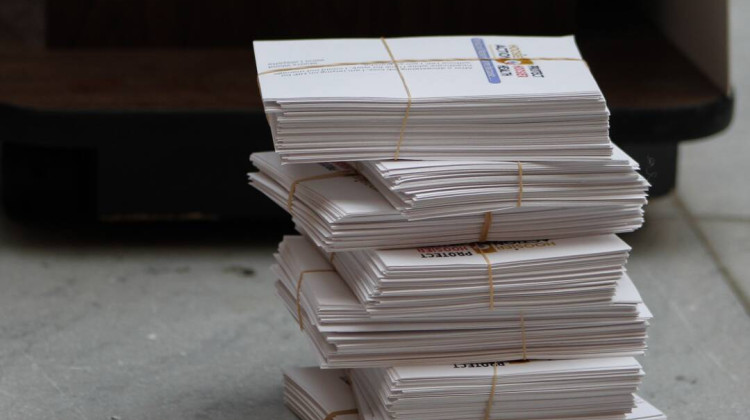
Abortion rights supporters gathered outside the Statehouse in a silent protest on the eve of Indiana’s near-total abortion ban becoming law, Wednesday, Sept. 14, 2022.
Emilie Syberg/WFYIAbortion is now largely illegal in Indiana.
The state’s near-total abortion ban took effect at midnight Thursday. It outlaws most of the thousands of abortions that typically occur in the state each year.
The ban, SEA 1(ss), has just three narrow exceptions. Abortions are allowed when the life or serious health of the pregnant person is at risk – but only up to 20 weeks. The same goes for lethal fetal anomalies, when the fetus can’t survive outside of the womb.
Join the conversation and sign up for the Indiana Two-Way. Text "Indiana" to 73224. Your comments and questions in response to our weekly text help us find the answers you need on statewide issues.
In cases of rape or incest, abortion is legal – but only up to 10 weeks.
Where those limited abortions can be performed has also changed dramatically. Before the ban, about 98 percent of abortions performed in Indiana happened at abortion clinics. But the law now bans clinics from providing abortion care. Instead, only hospitals and surgical centers owned by hospitals can perform them, further limiting options for pregnant people.
The law specifically says the abortion ban does not apply to in vitro fertilization. But it’s silent on contraception and the morning after pill, also known as Plan B. Some, including the ban’s author, insist those are not affected. Legal experts aren’t as sure.
There are lawsuits challenging the abortion ban. But the first hearing in those suits is scheduled for Sept. 19. An initial ruling could come any time after that.
Contact reporter Brandon at bsmith@ipbs.org or follow him on Twitter at @brandonjsmith5.
 DONATE
DONATE






 Support WFYI. We can't do it without you.
Support WFYI. We can't do it without you.